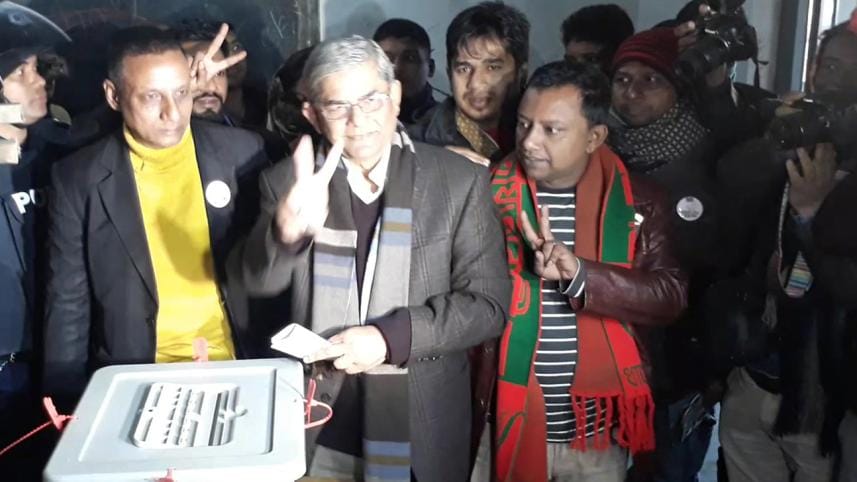Mirza Fakhrul casts vote in Thakurgaon

BNP Secretary General Mirza Fakhrul Islam Alamgir today cast his vote at the Thakurgaon Government High School polling centre. Photo: Star
BNP Secretary General Mirza Fakhrul Islam Alamgir today cast his vote at the Thakurgaon Government High School polling centre.
The BNP leader cast his ballot around 8:30am for the Thakurgaon-1 constituency from where he is contesting.
Voting for the general elections began at 8:00am this morning all over the country and will continue till 4:00pm.



 For all latest news, follow The Daily Star's Google News channel.
For all latest news, follow The Daily Star's Google News channel.
Comments